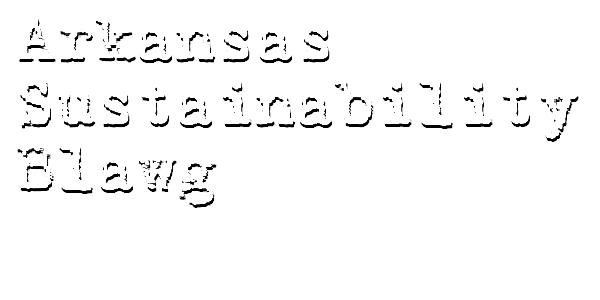 The Little Rock Sustainability
Commission has elected officers to serve for 2014. The new officers are:
The Little Rock Sustainability
Commission has elected officers to serve for 2014. The new officers are:- Chairperson: Benjamin D. Brenner (Mitchell, Williams, Selig, Gates & Woodyard P.L.L.C.)
- Vice Chairperson: Ron Hughes (HERS Inc. and Pulaski Tech)
- Secretary: Neil Gillespie (NICK Inc.)
The Commission's achievements include:
-
Founding and organizing the annual Little Rock Sustainability Summit, focused on sustainable policy and stories of success in environmental stewardship.
- Honoring achievements in sustainability by local businesses and individuals with the “Sustain the Rock Award.”
- Spearheading a City-wide sustainability assessment resulting in eight key recommendations for the City to become more sustainable.
- Developing a sustainable purchasing policy for the City.
- Promoting the City's Green Building Incentive Program, which provides financial incentives for residential buildings built to sustainable standards
- Drafting guidelines in 2011 for expanding farmers markets throughout the City.
The Commission is currently focused on a variety of issues that effect the Little Rock sustainasphere, including the creation of a clean energy district and implementation of the 2013 PACE legislation, advances in the residential energy efficiency code, greater connectivity of Little Rock's bike trails, commercial recycling, a 5, 10, and 20 year Sustainability Plan for the City of Little Rock known as the "Roadmap to Sustainability," and research into sustainability initiatives that promote economic development. More information about the Commission can be found here: Little Rock Sustainability Commission
The next meeting of the Commission will be Friday, May 23, 2014, at 11:30 a.m., at the Willie Hinton Neighborhood Resource Center on 12th Street in Little Rock.
The Little Rock Sustainability Commission meets the fourth Friday of every month 11:30 to 1:00 at the Willie Hinton Neighborhood Resource Center. The public is welcomed, invited, and encouraged to attend.
(Department of Self-Promotion: Yes, the
Benjamin D. Brenner elected Chair of the Little Rock Sustainability Commission
and the author of this sustainablog are one in the same.)
